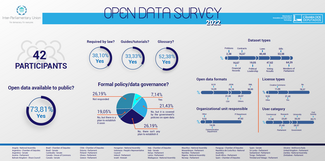- ImpactWe help parliaments to become greener and to implement the Paris agreement.We support democracy by strengthening parliamentsWe work to increase women’s representation in parliament and empower women MPs.We defend the human rights of parliamentarians and help them uphold the rights of all.We help parliaments fight terrorism, cyber warfare and the proliferation of weapons of mass destruction.We encourage youth participation in parliaments and empower young MPs.We support parliaments in implementing the SDGs with a particular focus on health and climate change.
- ParliamentsNearly every country in the world has some form of parliament. Parliamentary systems fall into two categories: bicameral and unicameral. Out of 190 national parliaments in the world, 78 are bicameral (156 chambers) and 112 are unicameral, making a total of 268 chambers of parliament with some 44,000 members of parliament. IPU membership is made up of 180 national parliaments
Find a national parliament
We help strengthen parliaments to make them more representative and effective. - EventsForumNY, United StatesThe Parliamentary Forum at the HLPF is designed to engage parliamentarians in assessing progress toward the Sustainable Development Goals (SDGs) at the global level.
- Knowledge
Discover the IPU's resources
Our library of essential resources for parliamentsGlobal data for and about national parliamentsLatest data and reports about women in parliamentResolutions, declarations and outcomes adopted by IPU MembersRecent innovations in the way parliaments workThe latest climate change legislation from the London School of Economics' databaseIPU on air- Conversations about parliamentary action

The results of the 2022 Open Data Survey, prepared by the Directorate for Innovation and Technology of the Chamber of Deputies of Brazil (click here to download)
The Open Data Hub within the IPU’s Centre for Innovation in Parliament (CIP) focuses on supporting open data initiatives in parliaments. The Hub conducted its second Open Data Survey in October 2022. The findings were presented by Patricia Almeida (Deputy CIO, Chamber of Deputies of Brazil, and Coordinator, Open Data Hub) during the Transforming Parliaments webinar on the state of open data in parliaments, which took place on 24 October. The results include a list of the 29 parliamentary chambers that currently publish open data on dedicated open data portals or microsites.
What is open data?
According to the Open Definition, open data is data that “anyone can freely access, use, modify and share for any purpose (subject, at most, to requirements that preserve provenance and openness)”. The most important aspects of open data are availability and access, re-use and redistribution, and universal participation. A more complete guide to open data can be found in the Open Data Handbook.
Good practices
The survey results revealed four good practices for parliamentary open data:
1. Make data easy to access
For open data to be freely used, modified and shared by anyone, it must be easy to access. This means making the data available as a whole, in a convenient and modifiable form, and at no more than a reasonable production cost, preferably by downloading over the internet. It must also be possible to re-use the data, including collating it with other data sets. In other words, everyone should be able to use, re-use and redistribute the data for any purpose.
2. Publish broad data sets in machine-readable format
Although the Open Data Hub encourages parliaments to publish as much of their data as possible as open data, actual practice varies considerably. In this survey, the most minimal open data set was limited to MPs’ attendance records, while the richest open data set included:
- bills
- MPs’ names, financial and voting records, and applications for parliamentary statements and opinions
- parliamentary documents, including:
- parliamentary motions
- records of plenary sessions
- government proposals, communications, statements and reports
- committee reports and statements
- parliamentary replies and communications
- interpellations
- written questions and replies to these questions.
In order to be considered open, data needs to be machine-readable. Common formats include XML, JSON, CSV, XLSX, ODS and RDF.
3. Provide open data as a dedicated service
As well as being open, data must also be accessible and discoverable. One good practice is to create a dedicated open data portal, which can be either separate from the parliament’s main website or a microsite within it. Some parliaments choose to use the governmental open data repository, which collates all public data sets in one place.
4. Ensure that data can be understood
Data is only useful to end users if they can understand it. This is why the Open Data Hub encourages parliaments to produce data glossaries (explaining the data structures and relationships), “getting started” guides and tutorials and, where possible, practical examples. The Hub also recommends that parliaments appoint a dedicated focal point – a role connected to wider IT planning – to deal with open-data-related requests, including changes, additions and new data sets, and to ensure that open data is always considered as part of systems development and procurement.




